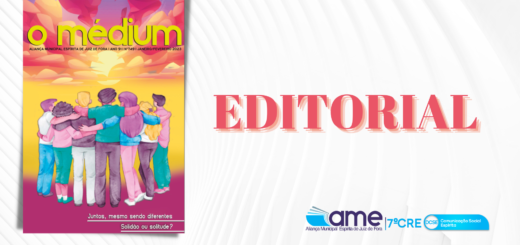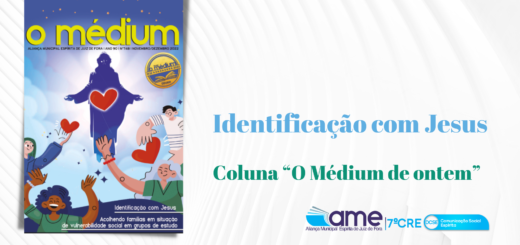Divine Providence: a dialog with Alvin Plantinga
Daniel Salomão Silva
Spiritism, in its philosophical aspect, addresses various profoundly significant questions, many of which cannot be empirically verified. One of these, perhaps the most important, is the existence of God, along with His ways of acting in the Universe or His Providence. On this subject, this article presents an introductory comparative analysis between some Spiritist ideas and those of contemporary Protestant philosopher Alvin Plantinga, who has advocated over recent decades for a reconciliation between academic philosophy and theism.
Even though some, especially in academic circles, still argue that Christian principles are outdated or inherently false, Plantinga has maintained that “there isn’t the faintest reason to think that Christian belief lacks justification, rationality, or warrant”1 On the contrary, regardless of its truth, it rests on solid rational foundations.
Firstly, echoing the conclusions of Saint Thomas Aquinas, the Spirits affirm that the “proof of the existence of God” lies in “In an axiom you apply to all your sciences: ‘There is no effect without a cause.”2 In other words, the mere observation of Nature, with all its complexity, is enough to justify belief in God. However, as noted in following questions in The Spirits’ Book, opposing arguments already existed, such as those defending Creation to the intrinsic properties of matter or, similarly, by chance. Both are regarded by the Spirits as insufficient or absurd.3
Nevertheless, with the advancement of science, particularly the consensus of the theory of evolution, arguments opposing Divine Creation have gained strength. As Plantinga points out, the fact that random genetic mutations are the theoretical foundation of natural selection would be for some enough to explain the origin of living beings without the involvement of a deity or anything similar. There would be no intelligent cause, purpose, or meaning in Creation.4 But does this apparent randomness truly contradict Christian belief?
Plantinga offers an intriguing and relatively traditional answer, suggesting that the theory of evolution is totally compatible with religious thought. It is within this seeming chance that divine action could be justified. That is, there could actually be an “intelligent design”, a divine plan acting through natural selection to create the various species of living beings, including the human being itself. After all, despite more literalist interpretations, biblical creationism (Genesis I) does not specify how God created the universe.
The similarity with the Spiritist understanding is undeniable. In some texts, Kardec notes the parallel between the biblical sequence of creation and scientific conclusions5 and the evolutionary process as an undeniable chain linking species6. He asserts that the material and mechanical forces governing Nature “are set at work, distributed, appropriated to the needs of everything by an intelligence, which is not that of man”: God.7
Plantinga further presents arguments that suggest even if one assumes a degree of automatism in the process of natural selection, it is necessary to admit the possibility of direct external interventions at certain stages of evolution. For example, to explain variations in the beaks of certain birds, evolutionary theory propóses that random genetic mutations produce species that are either more or less adapted to their food sources and environments. Those with better-adapted beaks tend to survive more successfully, passing on their traits to their offspring. Over time, with possible further modifications, only these better-adapted species continue their existence. In this case, the process appears to be automatic, which, as already seen, would not contradict the existence of God.
However, biochemist Michael Behe argues that there are molecular structures which are irreducibly complex, such as those found in the eyes, blood clotting systems, and immune systems, whose origins cannot be fully explained by the automatism proposed by evolutionary theory. For Behe, there are still no Darwinian explanations for these structures and it would be impossible to provide them. Therefore, once again, intelligent design emerges as the solution.8
According to Spiritism, this is also entirely possible. As Kardec points out,
“How can God, so grand, so powerful, so superior to all, interfere with the pettiest details, occupy himself with the most trifling thoughts and actions of each individual? Such is the question upon which unbelief alights, from which it concludes, that, in admitting the existence of God, his action should extend only to the general laws of the universe; that the universe operates to all eternity by virtue of these laws, to which every creature is subject in his sphere of activity without a need for the incessant cooperation of Providence.9
Thus, for Plantinga, God would always act in some way upon His creation, beyond His already established laws, like including “nudges” in certain directions—for example, in the evolution of living beings. That could explain the appearence of irreducibly complex structures identified by Behe. Plantinga also uses this reasoning to justify miracles and extraordinary phenomena recorded by various religions.10
The “fine-tuning” argument, as Plantinga puts it, also aligns with this perspective by postulating that the fundamental characteristics of galaxies, stars, and our world are essentially determined by a few physical constants. Apparent coincidences are needed so the Universe can exist as we know it.11 Since small differences would make physical existence impossible, it seems plausible to assume that an intelligent intention is behind the laws of gravitation and other forces governing matter, “fine-tuning” them perfectly.
The development of Quantum Mechanics, though its depth exceeds the scope of this text and the author’s expertise, seems to support the possibility of extraphysical actions on matter, contributing to the fine-tuning argument. As Plantinga notes, unlike deterministic Classical Mechanics, Quantum Mechanics suggests, that is not possible predict a unique configuration for a system at a given time, but rather a range of probabilities among many possible configurations12, particularly at the subatomic level. Within this finite field of possibilities, any intervention could be nearly imperceptible to us. Thus, Divine Providence could be conceived as an influence on micro-events at quantum levels, in order to achieve results at the macroscopic level, such as in astronomical and biological fields.
For Spiritism, this type of action is attributed to the Spirits. According to our basic work, “God does not exercise direct action on matter. He has dedicated agents at all levels of the scale of the worlds”. These agents, spirits, can exert a certain influence on elements of nature, such as meteorological, biological, chemical and physical processes in general. Interesting examples are recorded in subsidiary works, such as those psychographed by Chico Xavier, which, if they can’t be “proven”, can’t be considered irrational or impossible.
For Spiritism, this type of action is attributed to Spirits. According to one of Spiritism’s basic works, “God does not act directly on nature, but has devoted agents on every degree of the worlds’ scales.”13 These agents, the Spirits, may exert some influence over elements of Nature, including meteorological, biological, chemical, and physical processes in general. Interesting examples of such influence are recorded in Spiritist literature, like the ones psychographed by Chico Xavier14, which, though they can’t be “proved”, cannot be dismissed as irrational or impossible.
In conclusion, we emphasize the importance of Spiritism’s dialogue with conclusions from philosophy, science and religions, as Kardec always defended. Discussions such as those proposed by Alvin Plantinga are also important for the development of Spiritist thought, adding contemporary elements to its already robust body of doctrine. In line with Plantinga’s important reflections, Spiritism has sought since its origins to philosophically justify the existence of God, the immortality of the soul, mediumship, reincarnation, among other of its pillars. As for the main theme of the article, he sees no opposition between the belief in Divine Providence and the most accepted scientific theories about the origins of the Universe and life. On the contrary, he sees them as fully compatible.
In conclusion, we emphasize the importance of the dialogue between Spiritism and the findings of Philosophy, Science, and Religion, as Kardec always defended. Discussions like those proposed by Alvin Plantinga are important for the development of Spiritist thought, incorporating contemporary elements into its already strong doctrinal framework. In alignment with Plantinga’s reflections, Spiritism has sought since its beginning to philosophically justify the existence of God, the immortality of the soul, mediumship, reincarnation, among others foundational pillars. As for the main subject of this article, Spiritism finds no conflict between belief in Divine Providence and the most accepted scientific theories on the origins of the Universe and life. On the contrary, it sees them as fully compatible.
1 KARDEC, Allan. The Spirits’ Book. Rio de Janeiro: FEB, 2010, q. 4; Genesis. Rio de Janeiro: FEB, 2009, c. 2, i. 1 to 5.
2 KARDEC, Allan. The Spirits’ Book. Rio de Janeiro: FEB, 2010, q. 4; Genesis. Rio de Janeiro: FEB, 2009, c. 2, i. 1 to 5.
3 Idem, q. 7 and 8; The Genesis. Rio de Janeiro: FEB, 2009, c. 2, i. 6.
4 PLANTINGA, Alvin. Science, religion and naturalism: where is the conflict? São Paulo: Vida Nova, 2018, p. 26.
5 KARDEC, Allan. The Spirits’ Book, c. 2, i. 1 to 5.
6 KARDEC, Allan. The Spirits’ Book, c. 2, i. 1 to 5.
7 KARDEC, Allan. Genesis, c. 2, i. 6.
8 PLANTINGA, Alvin. Where the Conflict Really Lies: Science, Religion and Naturalism. Oxford University Press, 2011.
9 KARDEC, Allan. Genesis. c. 2, i. 20.
10 PLANTINGA, Alvin. Where the Conflict Really Lies: Science, Religion and Naturalism. Oxford University Press, 2011.
11 Idem, p. 178.
12 Idem, p. 94.
13 KARDEC, Allan. The Spirits’ Book, q. 536b.
14 XAVIER, Francisco C. On the Way to the Light. By the Spirit Emmanuel, c. 1 and 2; Missionaries of the Light. By the Spirit André Luiz. 25. ed., c. 13; etc.



